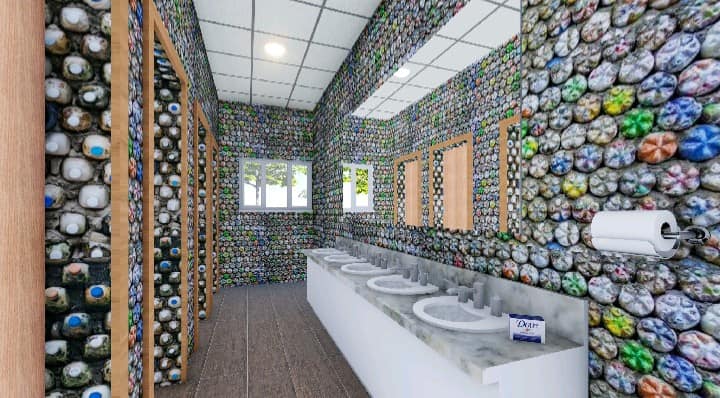
ICCDI Launches Plastic Bottle Toilet Project to Tackle Pollution and Open Defecation in Nigeria
The International Climate Change Development Initiative (ICCDI) has introduced an innovative solution to Nigeria’s environmental and public health challenges by constructing toilets made from recycled plastic bottles. This project, supported by the Canada Fund for Local Initiatives (CFLI), will roll out across Nigeria’s six geopolitical zones: Kano, Adamawa, Osun, Akwa Ibom, Enugu, and Niger.
Speaking at the official launch in Lagos, ICCDI Executive Director Olumide Idowu emphasized the dual objectives of addressing plastic pollution and improving sanitation access in underserved communities.
Addressing Two Key Challenges: Plastic Waste and Open Defecation
Nigeria faces significant environmental and public health issues, with millions of plastic bottles discarded yearly and widespread open defecation impacting health and safety.
“This initiative merges environmental sustainability with public health improvements by transforming plastic waste into functional sanitation facilities,” Idowu explained. The project aims to reduce environmental degradation and provide safe, hygienic toilets in areas where sanitation infrastructure is lacking.
Empowering Women and Youth for Community Development
A major focus of the project is the empowerment of women and youth, who are central to community development and environmental stewardship. Participants from the selected regions will receive training in constructing and maintaining bottle toilets using recycled materials.
Key benefits include:
- Skill Development: Hands-on training in recycling and sanitation construction.
- Leadership Opportunities: Women and youth will lead community climate action and sanitation education.
- Livelihood Creation: Equipping participants with skills that open doors to employment in recycling and eco-friendly construction.
“By nurturing women and youth as future leaders, we are investing in a generation that prioritizes sustainability and public health,” Idowu stated.
Driving a Circular Economy and Climate Resilience
The project integrates the principles of a circular economy by repurposing plastic waste for practical use, thereby reducing pollution while creating sustainable infrastructure. Local awareness campaigns, led by trained women and youth, will further educate communities on the importance of waste reduction and sanitation maintenance.
Key anticipated outcomes include:
- Plastic Waste Reduction: Diverting plastic bottles from landfills and waterways.
- Improved Sanitation: Safer, more hygienic toilet facilities, especially for women and girls.
- Economic Empowerment: Opportunities for small businesses in recycling and eco-friendly solutions.
- Climate Resilience: Promoting sustainable practices to combat climate change at the grassroots level.
World Toilet Day 2025 Milestone
The project will culminate on November 19, 2025, to coincide with World Toilet Day, when all six plastic bottle toilet facilities will be commissioned across the selected regions.
This initiative builds on ICCDI’s previous success, such as the commissioning of a six-unit toilet facility at Ilasamaja Primary School, Lagos, in July 2024, and underscores the organization’s dedication to scalable solutions addressing Nigeria’s dual crises of plastic pollution and open defecation.
A Step Toward a Cleaner, Healthier Nigeria
Through its unique approach to sustainability, sanitation, and community engagement, ICCDI’s plastic bottle toilet project is poised to make a transformative impact on public health, the environment, and local economies.






